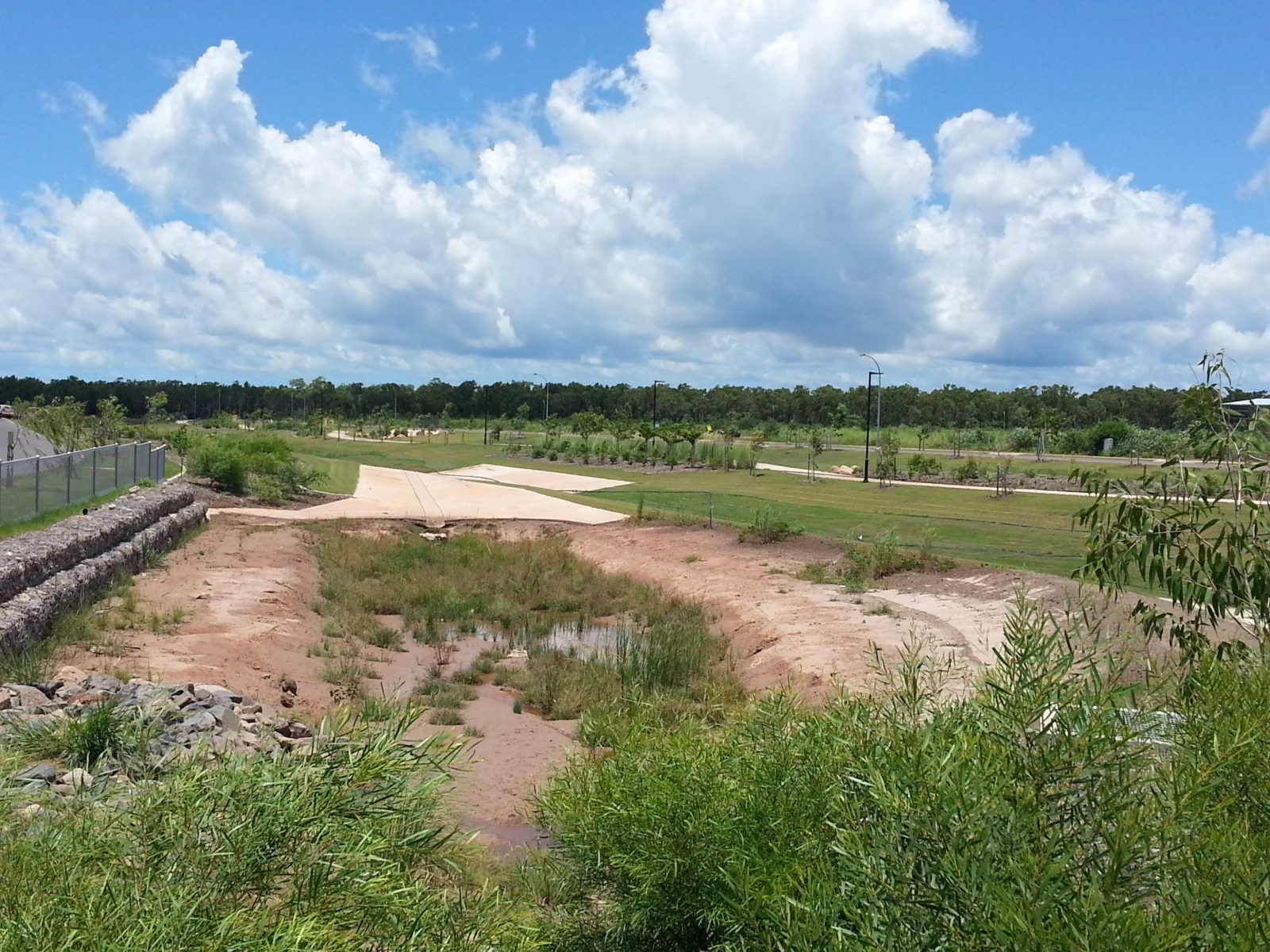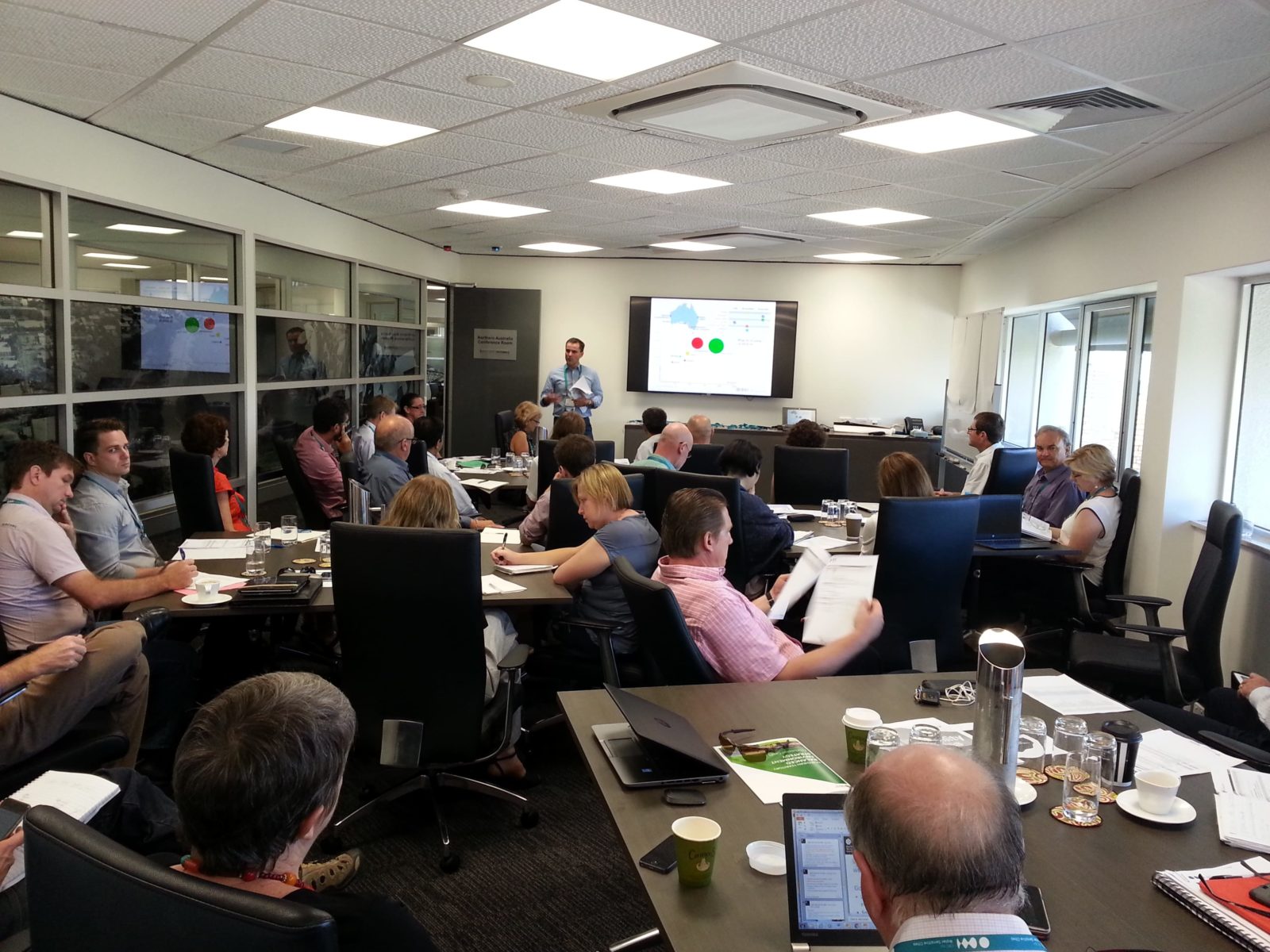Talking water shortage in the wet-dry tropics
Not long ago the idea of a water shortage in tropical Darwin seemed about as likely as the Earth's poles running out of ice. Torrential downpours during the annual wet season maintained the impression that water is of limitless abundance. But impressions can be wrong – just ask the polar bears.

All is not as it seems
Greater Darwin's reality is that it is situated in the wet-dry tropics, has a changing climate with highly seasonal rainfall, and an increasing population. Abundant wet-season rain is stored in dams – 85% of urban water comes from just one dam – but high temperatures and rapid evaporation during the dry season mean that much of it dissipates, placing water security firmly on the city's agenda. To help tackle this issue and present ideas for a water sensitive approach, the CRC for Water Sensitive Cities (CRCWSC) research synthesis workshops held in Darwin in February and March 2016, brought together local water and urban planning stakeholders, such as the Northern Territory's Power and Water Corporation (water utility), and government agencies, such as the Northern Territory Environmental Protection Agency, Charles Darwin University, CSIRO, and the Bureau of Meteorology. Armed with the knowledge of a range of CRCWSC research outcomes, the workshops explored the specific context of Darwin's water issues so that ideas could be adapted accordingly.
Attributes that define Darwin's water values include a near pristine harbour with a healthy aquatic ecosystem, and a growing, largely transient population that is attracted to its coastal lifestyle. Runoff pollution of the harbour from increasing urbanisation threatens both attributes. Past attempts to manage stormwater through water sensitive urban design features did not take into account the year-round climate of the wet-dry, providing useful lessons. Jamie Ewert, who leads the Research Synthesis Portfolio for the CRCWSC, points out the importance of taking cues from nature to design stormwater management approaches that can reduce runoff and cope with Darwin's seasonality:
“Ideas that work well in some parts of the country may not work in another local context. Biofilters, for instance, do well where rainfall is adequate year-round, but where large parts of the year are dry, they may not be the best option.” Jamie sees the value of using approaches that cater to specific locations, so if a stormwater biofilter was implemented it would need to be appropriate for local conditions.

Who cares?
Using large volumes of drinking water to maintain green lawns and gardens year-round also poses a threat to water security. Historic habits of liberally watering lawns and gardens during the dry season still persist, and convincing the residents of greater Darwin that potable water warrants conservation is one of the city's big challenges. In part, this is due to the unique demographic of Darwin's residents, who consist of tourists and short-term blue-collar workers who are sometimes distanced from local issues. Mark Wiltshire, Sustainable Development Manager of Power and Water Corporation, knows that changing the residents' water-use habits is key to conserving water in Darwin:
"The community here is simply not water literate. Many people are blissfully unaware of where their water comes from and just don't realise that it's in limited supply. Unlike some other parts of the country, Darwin has not had a major water crisis to help highlight this reality and create urgency for action within the community."
Education about the origin and limitations of Darwin's water supply should focus particularly on newly arrived community members to stop them adopting the poor habits of long-term residents. In addition to changing behaviour, the workshop's primary recommendation was to emphasise the link between the concept of sensible water use and maintaining a healthy harbour, and the need to protect Darwin's lifestyle in the face of population growth and climate change. According to Mark:
"We realise that we can be smarter about our water use without impacting the lifestyle that Darwin is famous for, and that's what we have to promote".
The research synthesis workshop provided a timely opportunity to introduce the CRCWSC to the Top End, where it has had a low profile to date. Bringing together all relevant decision-makers to reflect on what has been achieved in other tropical cities (such as Singapore) provided a forum for open communication, and for developing a shared water vision for Darwin. One particularly promising outcome has been a whole-of-government approach to building a water sensitive Darwin. Mark is pleased about the progress made since the workshop:
"We are now getting close to final government approval to combine forces and collaborate across the various levels of government. Ultimately, the impetus for this comes down to the CRCWSC's strong evidence base for the success of water sensitive cities, and its bipartisan approach. The workshop showed us that all relevant players can work together."
Nicola Markus for the Mind Your Way Team
Further reading
Ideas for Greater Darwin Region